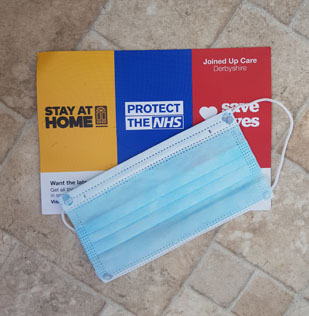Claire Bull of Better Bodies UK was the third of three speakers at a Shetravel webinar yesterday. Claire’s themes were mental health in the workplace and ‘workplace wellness’. While what she said applied to workplaces in general rather than specifically to private security, her background does include close protection, and near 20 years in the Prison Service, including as a family liaison officer; and providing stress awareness training, to prison staff ‘from cleaners to governors’.
As she began by setting out, some roles and departments may have more impact on someone’s mental health than others, and make it harder to cope, whether the working hours are long, or due to pressure, poor management supervision, or dangers in the workplace and traumatic experiences. Where is an employer to start, with mental health in the workplace? Think backwards, she advised; what’s the goal that you, the employer wants, for yourself and everybody? Has HR even asked what workers on the ground feel about stress, and found out ‘the truth in your workplace’? In other words, companies may say that they want a mental health policy; but if they don’t do the background work, they may fail before they have begun, she warned. “A lot of employers try to get this right, but it can go wrong.”
Consider the law, she went on; such as health and safety at work, and around mental health, to inform your policies and procedures. She made the case for good workplace mental health, and a culture of good mental health, as ‘one of the most valuable assets in any organisation’; the benefits can include more productive workers, and the retaining of staff. She raised the issue of ‘presenteeism’, the opposite of absenteeism, whereby workers are present physically, but otherwise not.
The host of the webinar, Shetravel founder Anna-Liisa Tampuu, the head of intelligence for the emergency medical and security response company Northcott Global Solutions (NGS), allowed time for the international audience to ask questions. It was plain from audience remarks that the webinar was welcome; that covid-19 has required adaptation, and a return to travel for business – are corporates insisting that executives get back travelling again? – could be a strain.
As the second speaker, Charlotte Copeland of SafeHaven, the workplace mental health training company, said; while lockdown was a shock and created a strain, it did create a sense of safety. But now there was uncertainty, itself ‘a significant stressor’. She suggested – to agreement from the audience – planning for 18 months to two years for a ‘significant rise in mental health challenges’ arising from the pandemic. She urged people to manage such uncertainty by naming it. “It isn’t going to go away quickly, as far as we know. The reality is that we have to look at the next 12 to 18 months, and that constant unknown.”
The first speaker was Caroline Neil of RPS Partnership, a security and risk training and consultancy company – offering advice for NGOs and others travelling to and working in dangerous regions. She reiterated that besides the pre-pandemic risks to the solo female traveller of harassment (and worse), a traveller faced having to get used to such things as air travel with mask (or visor) wearing required.
More in the October 2020 print edition of Professional Security magazine.
For the first speaker, click here. For the second speaker, click here.










